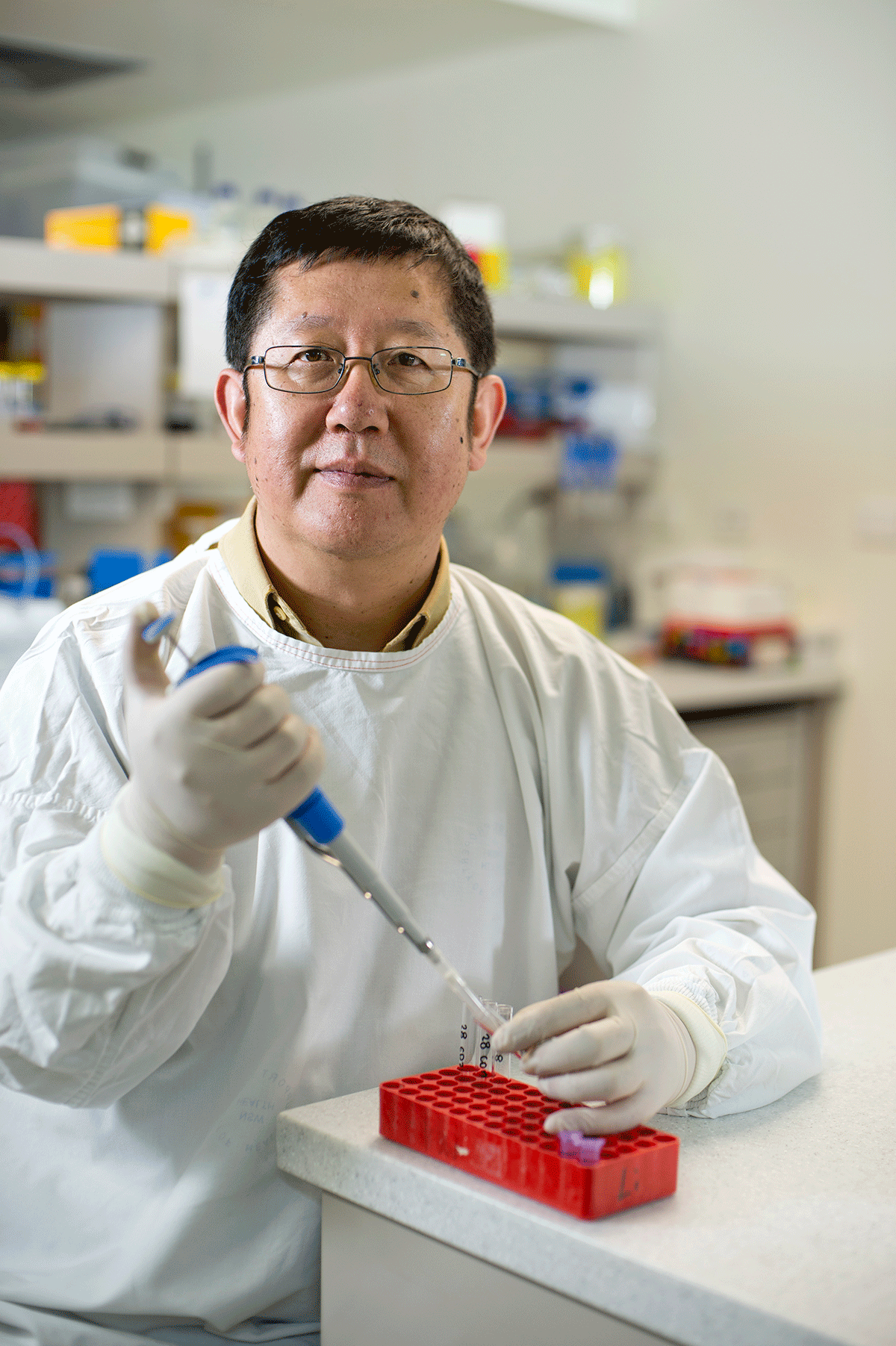New ‘linchpin’ in melanoma survival
The lethal double-life of a protein known as RIP1 has been exposed by University of Newcastle cancer researcher Professor Xu Dong Zhang, potentially spurring an all-new generation of highly targeted and long-lasting drugs for melanoma.
 The molecule, Receptor-Interacting
Protein kinase 1, has previously been linked to naturally occurring cell death
in the body but little attention has been paid to its pro-survival function in
melanoma cells.
The molecule, Receptor-Interacting
Protein kinase 1, has previously been linked to naturally occurring cell death
in the body but little attention has been paid to its pro-survival function in
melanoma cells.
Professor Zhang believes RIP1 sits near the top of signalling pathways for melanoma. Controlling its levels could therefore curb a series of subsequent signals, preventing further tumour growth.
"We started investigating RIP1 from a perspective of necrotic cell death before finding that it actually plays an important role in regulating melanoma cell survival … we had to turn our entire thinking around," Professor Zhang says.
"It appears to be upregulated [have elevated levels] from the earliest stages of melanoma so if we can inhibit the molecule's survival mechanism we believe we'll be able to kill melanoma cells, either alone or in combination with existing drugs."
In results just published in the US journal Cancer Research, Professor Zhang claims that the protein drives melanoma proliferation independently of other oncogenic (cancer causing) factors such as genetic mutations.
"Drugs that target the BRAF gene, for example, benefit a proportion of metastatic melanoma patients but unfortunately the response period can be relatively short – some patients relapse quite quickly," Professor Zhang adds. "This therapy could potentially result in better long-term outcomes for more people, which is urgently needed.
"Because it's right at the top of many pathways and we have mapped the site responsible I believe we can design some highly targeted inhibitors for RIP1, to switch off its pro-survival mechanism but leave its pro-death function intact … this will limit the side-effects."
The new finding has drawn widespread attention from other research institutes, including cell biologists at the Paris Descartes University, and is likely to lead to future collaborations.
Pilot funding from HMRI enabled post-doc researcher Lei Jin to work with Professor Zhang on exploring RIP1 and led to a subsequent Cancer Council NSW project grant.
* Professor Xu Dong Zhang is co-director of the Priority Research Centre (PRC) for Cancer at the University of Newcastle and deputy director of the HMRI Cancer Program.
Contact
- Media and Public Relations.
- Phone: 02 4921 5577.
Related news
- Enabling access and equity in higher education
- University-school partnership project seeks to lift student outcomes
- Inspiring capable communities
- World-first platform to help understand how bushfire smoke harms the lungs and heart
- University of Newcastle Professor Appointed Chief Scientist for South Australia
The University of Newcastle acknowledges the traditional custodians of the lands within our footprint areas: Awabakal, Darkinjung, Biripai, Worimi, Wonnarua, and Eora Nations. We also pay respect to the wisdom of our Elders past and present.